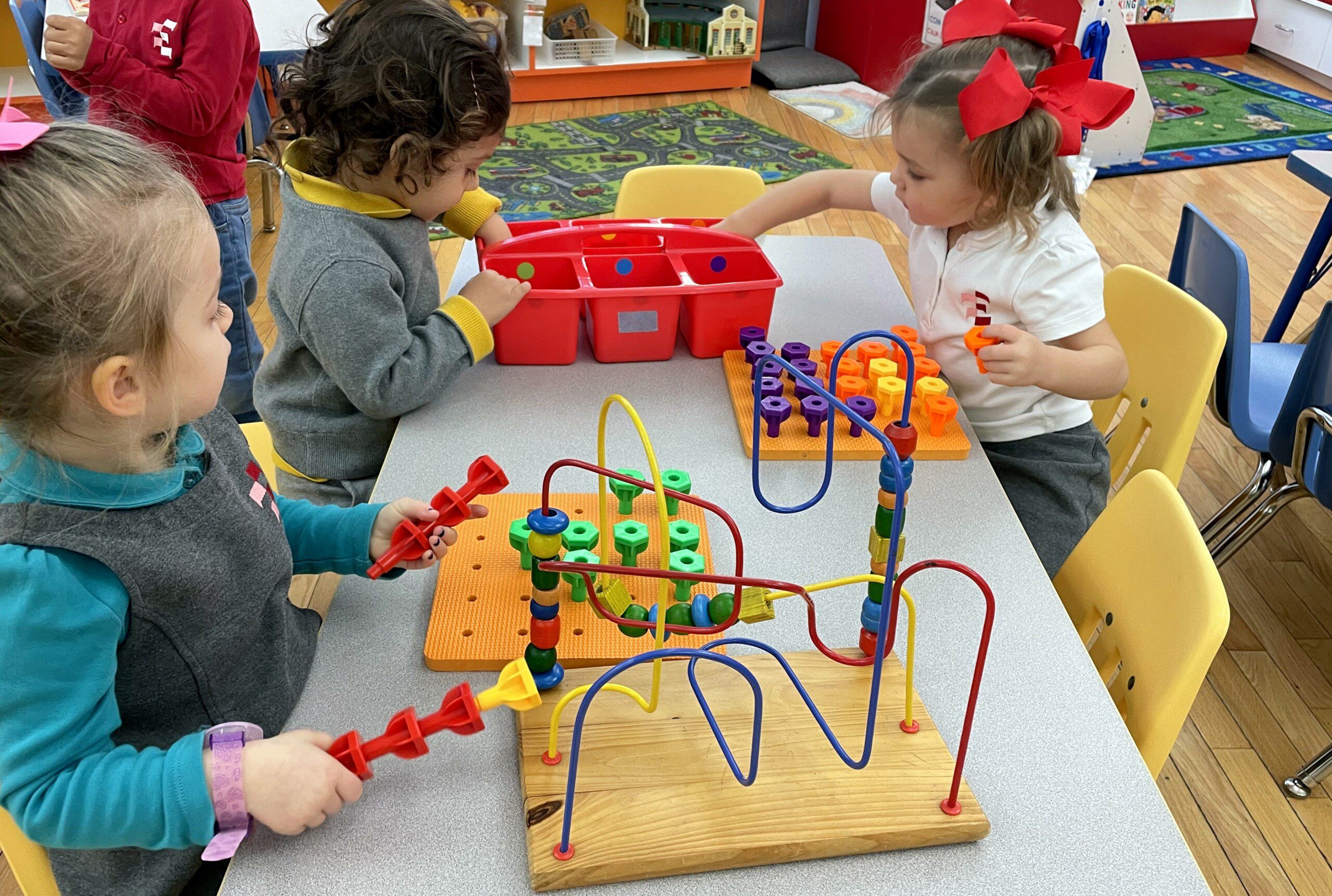Yesterday, I was John Travolta in Pulp Fiction. I danced – with the confidence that comes with having long hair and being married to Andria / Uma Thurman – amidst manga pirates, cowboys, zombies, Kens, Barbies, Cruellas, witches, and many others. I don’t know what the desire to dress up occasionally says about grown-ups – our psychologist, Stéphanie, is better placed than me to comment on the phenomenon – but I do know that children do it all the time. As it says in the French Ministry of Education’s curriculum documents, children love costumes.
Dressing up, pretending to be a storekeeper, a teacher, or a fireman, and playing with a toy tea set or car are all part of the daily universe of young children. When we are small, playing comes as naturally as breathing. Schools have always dedicated plenty of time to recess when kids can have fun in the playground, on the street, or in the park. The rest of the time, the children must work – school is a serious business! Learning to read, count, and spell is not always a barrel of laughs.
Except that, of course, it should always be a barrel of laughs! Learning should be the best thing in the world. We’ve been observing a steady transformation of the world of education for a few years now. It is becoming rare to see a period of play squeezed between two periods of work, and more common to see children play while they work. The term play-based curriculum was coined precisely for that purpose – one of my former colleagues and good friend is the head of a school in New Zealand with a passion-based curriculum.
Even the French system, which is not exactly famous for fun, has adapted. The reform of the Maternelle curriculum in 2015 signaled a new departure, putting play front and center of class life because “it fuels all areas of learning.”* Parents with children in our Maternelle building see the traces of the reform every day in the layout of the classrooms and, for example, when children arrive at school and play at different centers (we call it free play / jeu libre even if the teachers have carefully planned and considered everything).
What makes the French system different and what sets French schools apart from many others is the observations we make when children are at play and how the children’s competencies and skills are engaged. Each play-based activity is designed as a learning tool in itself, not only because it allows children to express themselves or to concentrate on a task but because it’s a means to help them learn more effectively. We refer to it as structured play.
We all know that The École’s bilingual program is very demanding. In our context, it would be easy to fall into the trap of assigning play and learning to two different spheres of school life. But our Maternelle teachers do incredible work around play – and we are supporting them in that work this year through professional development workshops in French and in English, mainly through regular sessions with Katrina Davino, one of the founders of Daffodil Hill Press.
Yesterday evening, it was the grown-ups’ turn to play, and this evening, it will be our middle schoolers’. As Mia Wallace / Andria said to me yesterday: Dance good!
*Some articles in English on play-based learning:
The scientific case for play-based learning
Embracing learning through play


